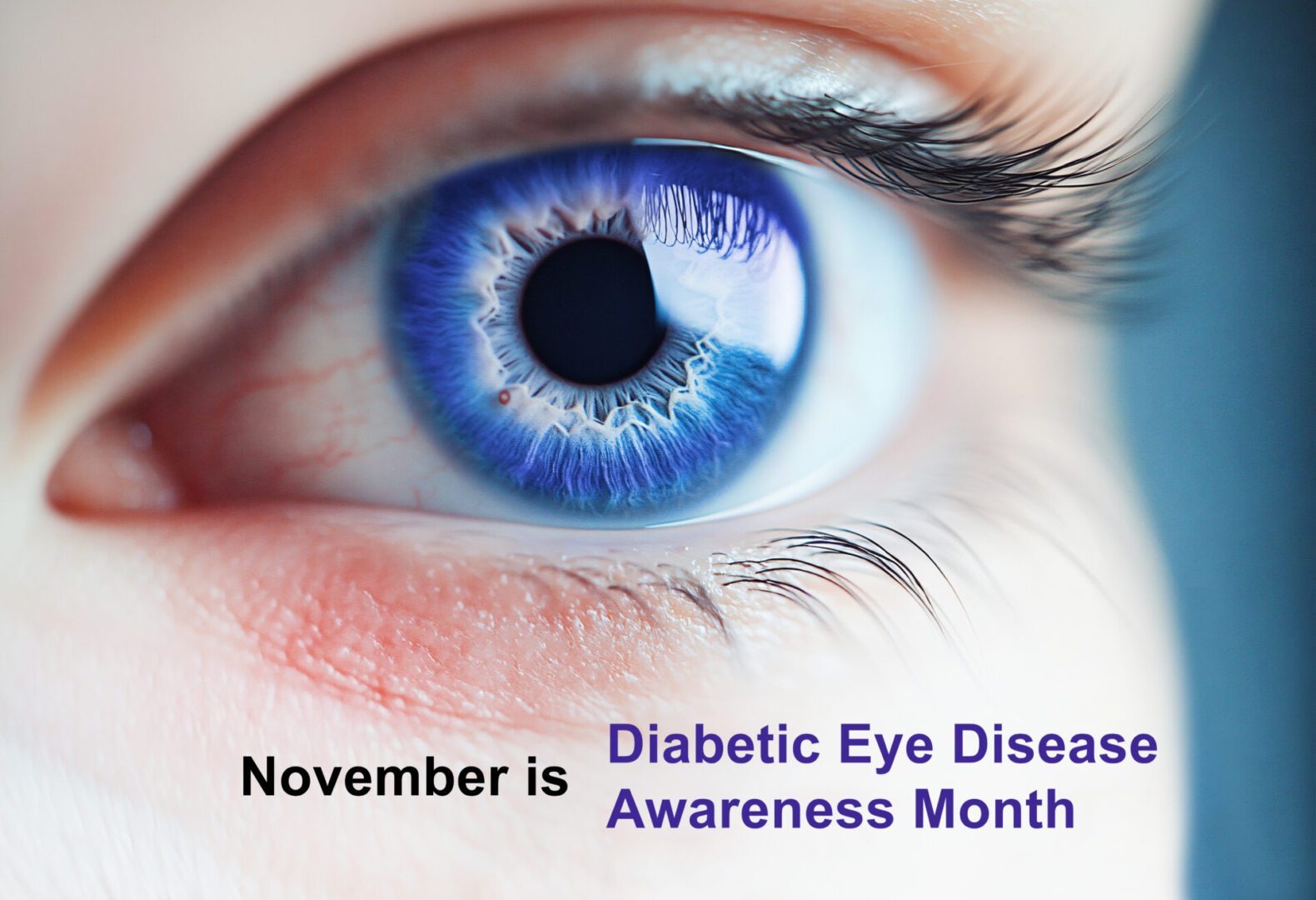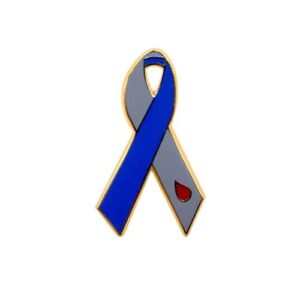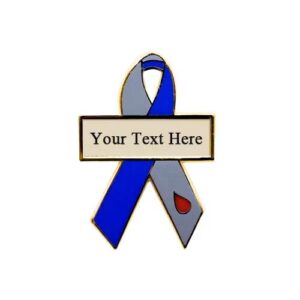
Diabetic Eye Disease Month
Diabetic Eye Disease Month occurs in November. Raise awareness during Diabetic Eye Disease Month. The most important aspects raise awareness about diabetes, diabetic eye disease, the importance of early disease detection, and related preventive health measures. National Diabetes Month is a time when communities across the country bring attention to diabetes. Wear a blood drop awareness ribbon pin to raise awareness for Diabetic Eye Disease Awareness Month. This blood drop awareness ribbon pin, made of enamel, is available in both a personalized and non-personalized version.
Wear a Blood Drop Awareness Ribbon Pin for Diabetic Eye Disease Awareness Month
Diabetes is a disease that occurs when blood glucose, also called blood sugar, is too high. It affects about 37 million Americans, including adults and youth. Diabetes can damage the eyes, kidneys, nerves, and heart,. It is linked to some types of cancer. But there’s also good news: Taking charge of your health may help you prevent diabetes health problems.
What is Diabetes?
- Diabetes mellitus occurs when the body cannot produce or respond appropriately to insulin, a hormone that absorbs and uses glucose (sugar) as fuel for cells.
- The stats are staggering: Approximately 30 million Americans (9 percent) have diabetes and another 84 million Americans (26 percent) have pre-diabetes.
- Diabetes lowers life expectancy by up to 15 years, increases the risk of heart disease by 2 to 4 times, and is the leading cause of kidney failure, lower limb amputations, and adult-onset blindness.
That might sound like a lot of bad news, but the important thing to remember is that diabetes can be controlled. Through good self-management skills and collaboration with a health care provider, you can still live a healthy, fulfilling, active life while preventing complications.
Risk Factors for Diabetes
Are you at risk for prediabetes?
Certain factors include:
- Being 45 years old or older.
- Having a history of gestational diabetes.
- Having a parent or sibling with diabetes.
- Having high blood pressure, being overweight, and participating in exercise fewer than three times per week.
Lowering your risk for diabetes requires manageable lifestyle changes such as weight loss, being more physically active, managing stress, and making healthy eating decisions.
Take small steps toward healthy habits.
Lifestyle habits such as planning healthy meals, being physically active, getting enough sleep, and not smoking may help you manage your diabetes ABCs. Start slowly and build healthier habits from there.
Take your medicines on time.
Remember to take your medicines even if you feel healthy. Talk with your doctor or pharmacist if you have trouble taking your medicines on time or at the correct dose.
Reach or maintain a healthy weight.
If you have overweight or obesity, ask your primary care provider if healthy eating, physical activity, or other weight-loss treatments may help you manage your weight.
Take care of your mental health.
Managing diabetes can be hard. If you feel down, sad, or overwhelmed, learn about healthy ways to cope with stress. Consider talking to a mental health counselor or joining a support group.
Work with Your Health Care Team During Diabetic Eye Disease Month
Managing diabetes takes a team. Your health care team may include a primary care provider, diabetes specialist, registered dietitian, or certified diabetes educator. Ask your primary care provider if you should talk with other health care professionals about your diabetes.
Diabetes medicines, devices, and office visits can be expensive. A social worker or a member of your health care team may be able to help you find community resources or financial help for diabetes care.



